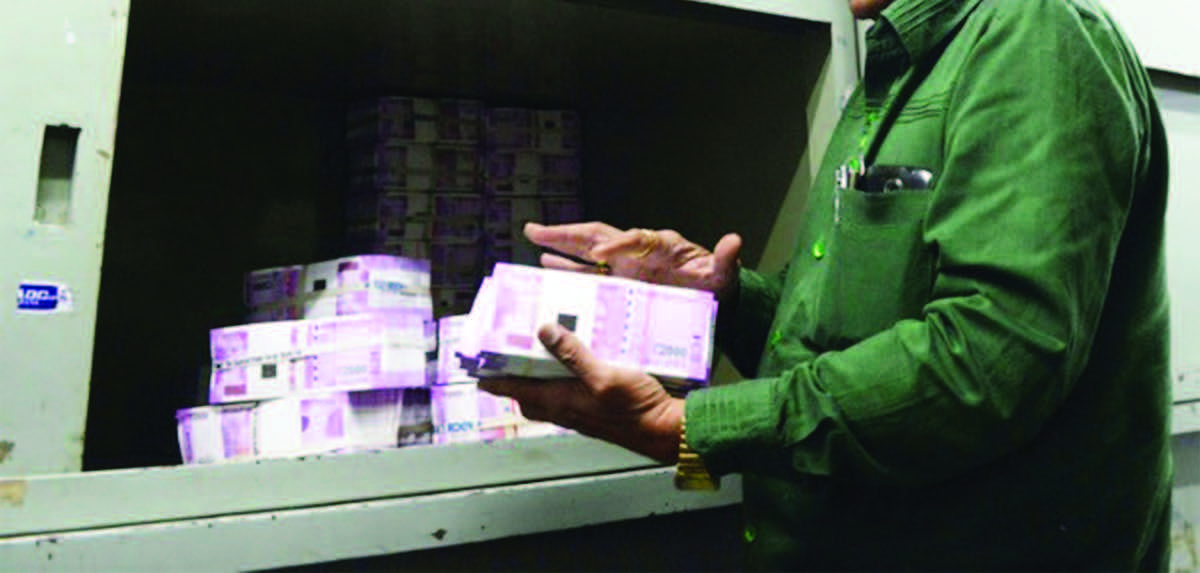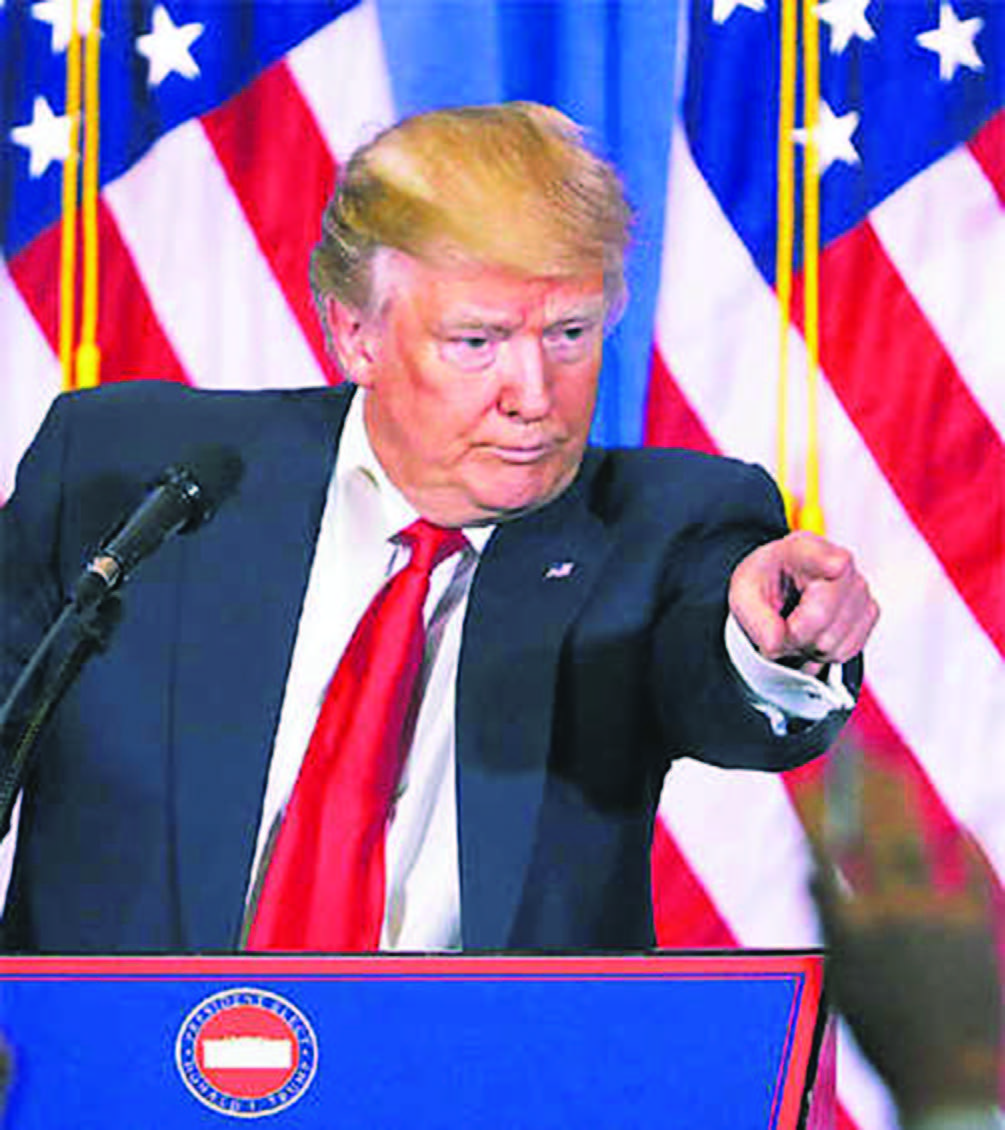

“Today, our politics has become so divisive and toxic that any ‘reform’ becomes suspect. There is no ‘JRD’ today who would be able to tell the Prime Minister that he would be funding his political rivals. There is no business house that does not seek a favour from the government of the day. This vulnerability induces moral timidity and financial chicanery. The unvarnished fact is that no corporate house can sanguinely acknowledge writing cheques for a political party’s treasurer. No businessman can afford to earn the wrath of the ruling party and incite a visit from that ubiquitous ‘ED’ or the CBI who invariably end up seizing ‘incriminating documents’. Even the most honest trader or contractor or entrepreneur remains vulnerable to the State’s minatory inspector”, says the author – Harish Khare.
Sometime in early 1959, JRD Tata, India‘s most respected and iconic entrepreneur, wrote to Jawaharlal Nehru that though his group, the Tatas, would continue to keep funding the Congress Party, he wanted to inform the Prime Minister that it would also be financing the newly established Swatantra Party. The Tata doyen told the Prime Minister that he found the Swatantra Party to be having a much closer appreciation of the needs of the business community; hence, he felt his group was obliged to extend whatever support it could to the Swatantra Party. Unperturbed, Nehru replied to JRD that he and his group were fully entitled to fund and finance whichever political activity they deemed worth their penny. As far as he was concerned, he had no doubt in his mind that the Swatantra Party had no future in Indian politics. Nehru was proved right: the Swatantra Party folded its tent within 15 years, though not without some spectacular successes in the 1962 and 1967 Lok Sabha elections.
What neither Nehru argued nor JRD understood was that the Indian business community did not need a party like the Swatantra Party, a political outfit that believed in plain, simple, clean capitalism, whereas the Indian businessmen had thrived only under State patronage and its louche cousin, crony capitalism. Both before and after the 1991 reforms, the so-called entrepreneurs relied on political connections for their financial prosperity. Even now, the Indian State retains a very capricious capacity to mug any business house of its happiness. That is why the totally strange and inexplicable sight of a Ratan Tata making a pilgrimage to Nagpur to pay a ‘courtesy call’ on Mohan Bhagwat, the RSS boss man.
All this needs to be recalled in order to contextualise Finance Minister Arun Jaitley‘s attempt to cleanse the political party’s dirty financial stables. Over the years, all political parties have had access to huge and, that means, really huge -funds to finance elections and political activity. And, this means a less-than-honourable juggalbandi with the dishonest businessman. This juggalbandi has been at the core of all the ills and imperfections of Indian democracy. On the one hand, there rose- and, rose mightily -the houses of the Adanis and the Ambanis; the rise has been attributed to their ability to cosy up to political leaders. On the other hand, we have had the politicians with business links -the SK Patils, the LN Mishras, the Pramod Mahajans – having acquired prominence and clout within their own parties. Narendra Modi‘s own ascendency in Gujarat can easily be traced to the ecology of institutionalised crony capitalism. And, by all accounts, the BJP had outspent many times over all its rivals in the 2014 Lok Sabha elections.
No political party can pretend to have its hands clean, or even cleaner than the other. A handful of individual leaders may be able to claim a kind of personal honesty but none is entitled to a claim of ignorance about his/her party’s ability to access dirty money. No political party can claim to be morally superior when it comes to receiving – or extorting -funds from businessmen, big or small. In recent years, AAP has sought to put in place a somewhat transparent system but, of late, it too has found itself being accused of unclean transactions.
At first glance, Mr. Jaitley has taken the first step towards forcing the political parties to clean up their account books. It is a political reform whose day has come. Not a day too soon. The middle classes, who have peremptorily colonised the sites of political argumentation, can be tempted to cheer this as a transformative moment. Yet, the temptation must be resisted-for three reasons.
First, politics is an expensive business. A political party and its activities -mobilisation of support and dissent, sustenance of a large number of party activists, and, increasingly, the need for access to expensive technology of social media – cost quite a bundle. The bigger the party, the larger its establishment and larger the size of its baggage-and, the heftier its monthly bill. Second, the government – at the Centre and in the states – has not vacated its rent-seeking sites. There will always be temptation for a chief minister to use his coercive powers to generate easy money, for personal or political use. Political parties attract mostly the parasitic elements that come to the arena only to live off the taxpayer. And, third, there is no dismantling of crony capitalism. Consequently, the unclean and unethical businessman would continue to seek out the unclean and unethical politician. The businessman’s greed and the politician’s rapacity work in tandem.
Nonetheless, a beginning has been made. Still, it would be reassuring to know that the Finance Minister’s initiative was not simply motivated by political cleverness, aimed at grounding the BJP’s rivals – just as some suspect that demonetisation was primarily driven by a desire to ‘pauperise’ the other political parties. That calculation seems to be coming unstuck in Uttar Pradesh. The Modi government has incurred a serious trust deficit.
Political parties in India will continue to have a legitimate need for funds, both for and beyond electioneering activities. And, it is perfectly legitimate for a business house or a rich businessman to ‘reward’ a political party or leader on account of a platform or ideology. In fact, even before Independence, most Indian business leaders willingly and cheerfully funded Mahatma Gandhi’s establishment. After 1947, many regional businessmen were inclined to fund, finance and support regional political outfits.
Today, our politics has become so divisive and toxic that any ‘reform’ becomes suspect. There is no ‘JRD’ today who would be able to tell the Prime Minister that he would be funding his political rivals. No businessman can afford to earn the wrath of the ruling party and incite a visit from that ubiquitous ‘ED’ or the CBI who invariably end up seizing ‘incriminating documents’. Even the most honest trader or contractor or entrepreneur remains vulnerable to the State’s minatory inspector.
Mr. Jaitley’s budget has so ordained that the political parties – including the BJP – would have to rejig their financial connections. Transparency in public life is a much-desired goal, but it should not be used to frogmarch the rivals out of the political arena. New norms of a level-playing field will need to be institutionalised. Otherwise the Jaitley remedy may be worse than the disease.
(The author is editor in chief of Tribune group of newspapers)
British English





Be the first to comment